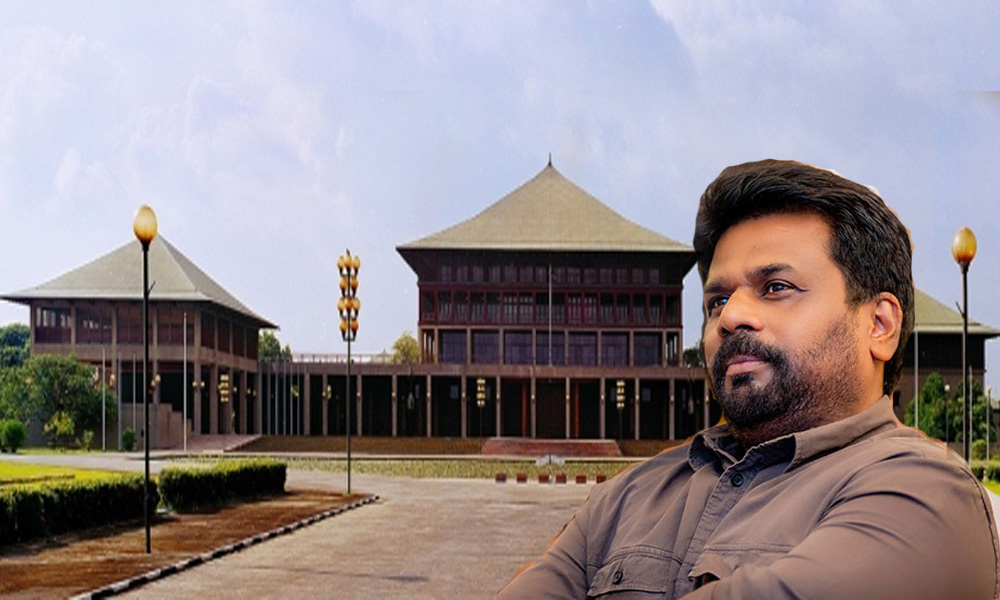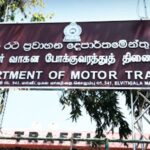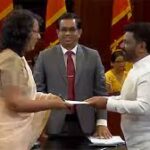
Sri Lanka Government to Cut Parliamentary Costs by Reducing MP Benefits and Ministers
- CNL Reporter
- November 18, 2024
- Political
- Sri Lanka Government
- 0 Comments
Behind the News
The Sri Lankan government, under President Anura Kumara Dissanayake, is taking steps to lower the costs of Parliament by reducing the perks given to newly elected Members of Parliament (MPs) and limiting the Cabinet to 21 ministers.
A new committee has been formed to overhaul MP benefits, which will include cutting vehicle provisions, pensions, housing allowances, and other financial perks. The committee aims to introduce new legislation to curtail these expenses.
The Government of Sri Lanka is to reduce the heavy cost of maintaining Parliament by curtailing the benefits given to newly elected Members of Parliament while reducing the number of ministers to 21.
The new Cabinet of Ministers of the National People’s Power (NPP) government were sworn in before President Anura Kumara Dissanayake, a short while ago today .
The swearing-in ceremony was held at the Presidential Secretariat in Colombo this morning Monday (18) November 2024.
The new Cabinet of Ministers comprises of 21 Ministers including the Prime Minister while the new Deputy Ministers will reportedly be appointed later on.
Accordingly, the new Cabinet will be limited to 21 Ministers, whereas President Anura Kumara Dissanayake will retain the ministerial portfolios of Defence, Finance, Economic Development and Digital Economy, according to the President’s Media Division (PMD).
In the respect of reducing the heavy cost of maintaining Parliament , a committee has been appointed headed by a retired officer of the Sri Lanka Administrative Service to spearhead these reforms with the goal of slashing the currently enjoyed perquisites and allowances by MPs.
It will scale back vehicle provisions, pensions, house allowances, and other financial perks that come with the election of the parliamentarians. The mandate of the committee will be to look at the existing package and come up with new legislation to be tabled in parliament shortly.
This is besides the increasing government spending that has reached a fever pitch with demands for more financial responsibility arising due to the economic crisis.
The annual budget of Parliament has ranged between Rs. 4 – 5 billion approximately $11 – 14 million USD. The salaries, allowances, and perks of MPs drain over Rs. 1 billion [$2.7 million USD] alone , parliamentary statistics revealed .
The basic salary for MPs in Sri Lanka, compared with world standards, is pretty modest. An ordinary MP earns an income of about Rs. 54 000 – 60,000 ($150 – $165 USD), while senior members such as the Speaker, Prime Minister, and Cabinet Ministers enjoy Rs. 100,000 – 150,000 ($275 – $410 USD) a month.
In addition, the members receive a sitting allowance of Rs 2,500 for every day spent in the House, office allowance of Rs 100,000 per month and entertainment allowance of Rs 1,000 per month.
All the members who do not get a driver provided by the state may claim a driver allowance of Rs 3,500; fuel allowances are adjusted with respect to how far his constituency is from the centre of the state.
Apart from these, the facility of a telephone allowance of Rs. 50,000 per month is provided to MPs along with a transport allowance for the staff amounting to Rs. 10,000 per month. They also get Rs. 350,000 annually as the postal allowance for free postage.
While they don’t receive monitoring member allowance, subsistence allowance, train passes, or newspaper allowance amongst others, there are some reasonable expenses attached to their perks.
They will be given vehicle loans, fuel subsidies, and office maintenance for constituency operations that include paying employees, telecommunication amongst others.
Besides that, another big expense in the cost of living is housing; to that effect, members of Parliament are given a house allowance in addition to those who do not use government accommodation. Both members and their families equally enjoy health benefits covered by the government.
Other entitlements include subsidised air travel to destinations out of official work, plus pension benefits after serving in Parliament

